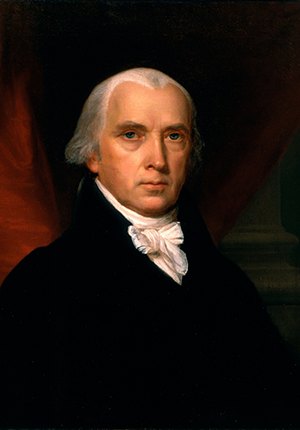Background
James Madison was the primary author of the First Amendment. In his Memorial and Remonstrance, Madison urged the Virginia legislature to reject a pending bill that would have provided for public funding of those teaching the Christian faith and pass Thomas Jefferson’s religious freedom bill. He also offered one of the most powerful defenses of the freedom of conscience ever written. Like Jefferson, Madison believed that the freedom of conscience was, by definition, an unalienable right. As Madison explained, “It is unalienable, because the opinions of men, depending only on the evidence contemplated by their own minds cannot follow the dictates of other men.”








